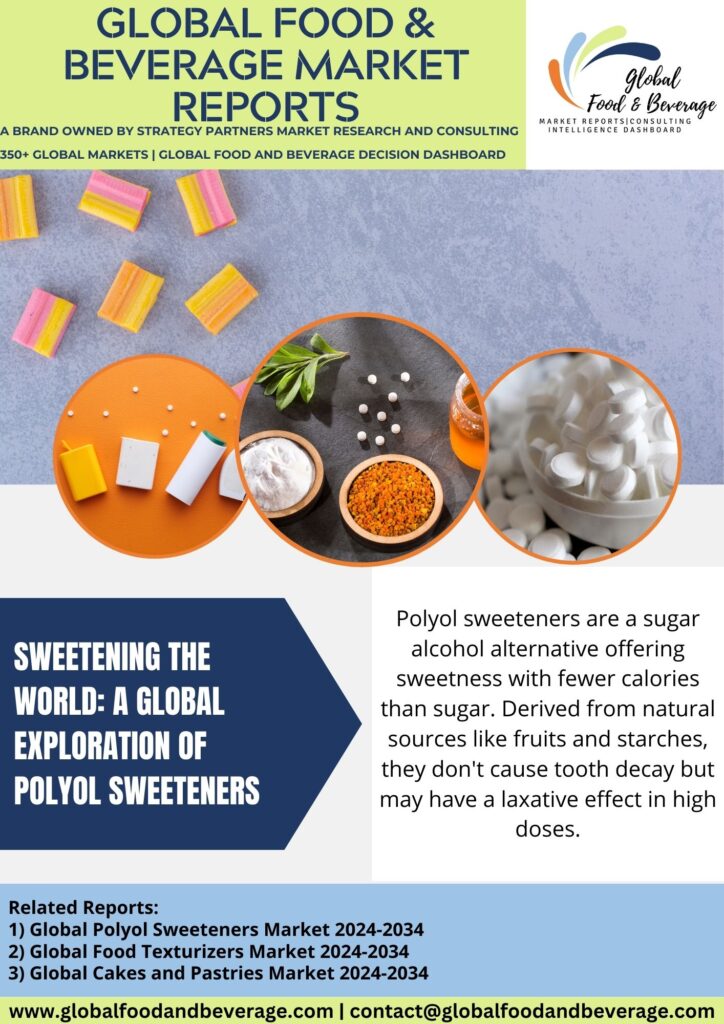Polyol sweeteners: a global exploration
Polyol sweeteners are a group of sugar substitutes that are gaining global prominence in the food and beverage industry. These sweeteners, also known as sugar alcohols, are characterized by their low-calorie content and ability to provide sweetness without causing a significant spike in blood sugar levels. Common types of polyol sweeteners include sorbitol, xylitol, maltitol, erythritol, and isomalt.

One of the key drivers behind the increasing demand for polyol sweeteners on a global scale is the rising awareness of health-conscious consumers regarding the adverse effects of excessive sugar consumption. As obesity and diabetes rates continue to climb, individuals are seeking alternatives to traditional sugar that allow for a sweet taste without compromising their health.
Polyol sweeteners offer several advantages, such as a reduced impact on blood glucose levels, making them suitable for individuals with diabetes or those following a low-glycemic diet. Additionally, they do not contribute to tooth decay, making them a preferred choice for oral health.
The food and beverage industry has embraced polyol sweeteners as a versatile ingredient in various products, including sugar-free candies, chewing gum, baked goods, and beverages. Manufacturers appreciate their ability to mimic the taste and texture of sugar while providing a lower calorie option.
The global market for polyol sweeteners continues to expand, driven by the growing demand for healthier food choices. As regulatory bodies endorse these sugar substitutes as safe for consumption, their popularity is expected to soar. Moreover, ongoing research and development efforts aim to improve the taste profiles and functionalities of polyol sweeteners, further fueling their adoption in the global market.
ADVANCEMENT:
The global landscape of sweeteners has experienced a notable shift with advancements in polyol sweeteners. Polyols, also known as sugar alcohols, have gained prominence as low-calorie alternatives to traditional sugars, offering sweetness without the same impact on blood sugar levels. This shift is driven by a growing demand for healthier and sugar-reduced products worldwide.
Advancements in polyol sweeteners include improved taste profiles and texture. Manufacturers have invested in refining formulations to address the characteristic cooling effect and potential laxative effects associated with certain polyols. The result is a more palatable and consumer-friendly experience, making polyol sweeteners increasingly popular in a variety of food and beverage applications.
The functional benefits of polyol sweeteners have also contributed to their global appeal. They are commonly used in sugar-free and reduced-sugar products, catering to consumers looking to manage their calorie intake and maintain a healthy lifestyle. Additionally, polyols, such as xylitol and erythritol, are known for their dental health benefits, including cavity prevention and reduced risk of tooth decay.
The global market for polyol sweeteners continues to expand as health-conscious consumers seek alternatives to traditional sugars. With ongoing research and development efforts focused on enhancing taste, texture, and functional attributes, polyol sweeteners are poised to play a key role in the evolving landscape of sugar substitutes, meeting the demand for healthier and more versatile sweetening options on a global scale.
CHALLENGE:
Polyol sweeteners face several challenges in the global market despite their widespread use as sugar substitutes. One significant obstacle is the taste profile. While polyols are employed to mimic the sweetness of sugar without the associated caloric content, some individuals may find their taste less appealing or may experience a cooling sensation in the mouth, limiting broad consumer acceptance.
Regulatory scrutiny is another challenge for Polyol Sweeteners Global. Different regions have varying regulations and standards regarding the use of sweeteners, and navigating these diverse requirements adds complexity to market penetration. Ensuring compliance with safety standards and demonstrating the absence of adverse health effects is paramount for gaining regulatory approval.
Cost considerations also play a role. Although polyol sweeteners offer an attractive alternative to sugar for individuals managing conditions like diabetes, the production costs are often higher, making them less economically competitive. This can limit their accessibility to a broader consumer base.
Furthermore, misinformation and misconceptions surrounding the safety and health effects of polyol sweeteners present a communication challenge. Educating consumers about the benefits and safety of these sweeteners is essential to overcome unfounded concerns and build trust in the market.
To thrive in the global market, Polyol Sweeteners Global must address these taste, regulatory, cost, and communication challenges, emphasizing the advantages of their products in terms of health, taste, and versatility as a sugar substitute. Overcoming these hurdles will contribute to the continued growth and acceptance of polyol sweeteners in the broader food and beverage industry.”
CONCLUSION:
In conclusion, the global market for polyol sweeteners has witnessed substantial growth, driven by increasing awareness of sugar-related health concerns and a rising demand for low-calorie sweetening alternatives. Polyols, such as xylitol, erythritol, and sorbitol, have become integral components in the food and beverage industry, offering sweetness without the caloric impact of traditional sugars. The expanding prevalence of diabetic conditions and the pursuit of healthier lifestyles have further propelled the adoption of polyol sweeteners. As consumers continue to prioritize reduced-sugar options, the global polyol sweeteners market is poised for sustained expansion in the foreseeable future.